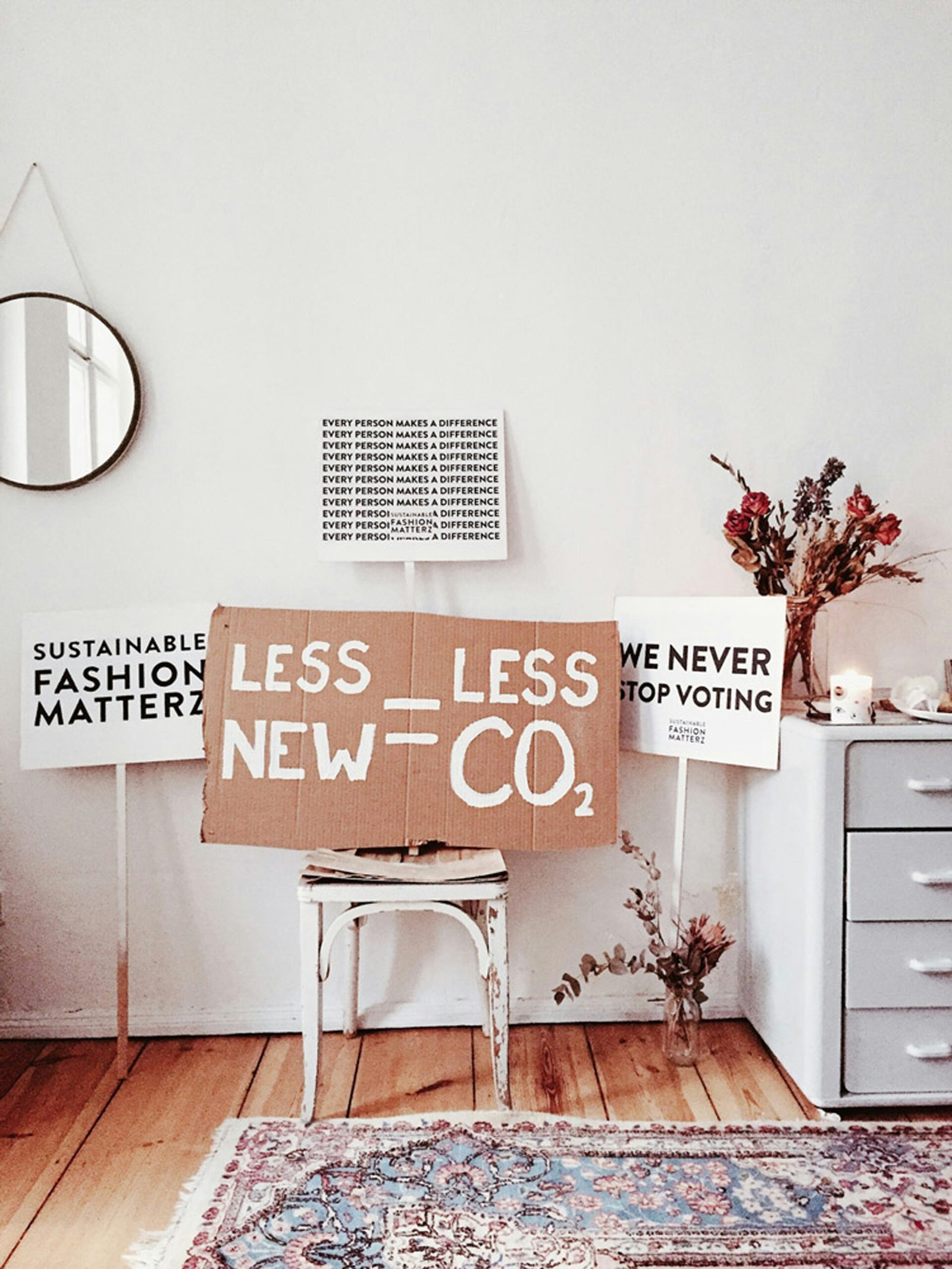
Fashion activism has gained momentum in recent years, as consumers and industry professionals alike have become more aware of the harmful effects of fast fashion and unethical practices within the fashion industry. It has become increasingly clear that the fashion industry is one of the largest contributors to pollution, waste, and exploitation of workers, particularly in developing countries.
One of the key goals of fashion activism is to raise awareness about these issues and encourage consumers to make more conscious choices when it comes to their fashion purchases. Many fashion activists believe that by supporting sustainable and ethical brands, consumers can send a powerful message to the industry and drive positive change.
One example of a fashion activism campaign is the “Who Made My Clothes?” movement. This campaign was launched by the non-profit organization Fashion Revolution in response to the Rana Plaza factory collapse in Bangladesh in 2013, which killed over 1,100 garment workers. The campaign encourages consumers to ask brands about the origins of their clothes and to demand transparency in the supply chain. By doing so, consumers can hold brands accountable for their actions and support those that prioritize worker safety and fair wages.
Another important aspect of fashion activism is the promotion of diversity and inclusivity within the industry. For too long, the fashion industry has been criticized for its lack of representation, particularly in terms of race, size, and gender. Fashion activists are working to challenge these norms and push for greater diversity on the runways, in advertising campaigns, and in the boardrooms of fashion companies.
One notable campaign in this regard is the “Fenty Effect,” inspired by Rihanna’s groundbreaking makeup line, Fenty Beauty. The brand’s wide range of foundation shades, which cater to a diverse range of skin tones, sent shockwaves through the beauty industry and prompted other brands to follow suit. This campaign highlighted the demand for more inclusive products and forced other brands to re-evaluate their own offerings.
In addition to these specific campaigns, fashion activism also encompasses broader initiatives aimed at promoting sustainability and reducing the industry’s carbon footprint. This includes encouraging brands to adopt more sustainable practices, such as using organic and recycled materials, reducing water and energy consumption, and implementing fair trade principles.
Overall, fashion activism is a powerful force for change within the fashion industry. By raising awareness, promoting inclusivity, and advocating for sustainability, fashion activists are challenging the status quo and pushing for a more ethical and responsible fashion industry.
Additionally, fashion activists are also working towards advocating for environmental justice through policy change. They recognize the need for government regulations and legislation to address the environmental impact of the fashion industry. By lobbying for stricter regulations on waste management, pollution control, and sustainable production practices, fashion activists aim to hold the industry accountable for its actions.
Furthermore, fashion activists are actively involved in promoting and supporting sustainable fashion initiatives. They collaborate with designers, brands, and organizations that prioritize eco-friendly practices and materials. These initiatives include promoting the use of organic and recycled fabrics, encouraging upcycling and recycling of clothing, and supporting local and ethical fashion brands.
Education and awareness are also key components of fashion activism for environmental justice. Fashion activists organize workshops, seminars, and awareness campaigns to educate consumers about the environmental impact of their clothing choices. They emphasize the importance of reducing consumption, investing in quality and timeless pieces, and embracing a more sustainable approach to fashion.
Moreover, fashion activists are engaged in research and development of innovative solutions to reduce the environmental impact of the fashion industry. They collaborate with scientists, researchers, and entrepreneurs to explore new technologies, materials, and production methods that are more sustainable and eco-friendly. These efforts include the development of biodegradable fabrics, waterless dyeing techniques, and circular fashion systems.
In conclusion, fashion activism for environmental justice encompasses a wide range of initiatives and actions. From advocating for policy change to promoting sustainable fashion practices, fashion activists are working towards a more environmentally conscious and responsible industry. Through their efforts, they strive to create a fashion industry that respects the environment, protects workers’ rights, and promotes sustainable consumption.
Sustainable Fashion Advocates
Alongside the advocacy for environmental justice, fashion activism also encompasses the promotion of sustainable fashion practices. Sustainable fashion advocates aim to challenge the prevailing fast fashion model and encourage the adoption of more sustainable alternatives.
The “Slow Fashion” movement is an example of sustainable fashion activism. It emphasizes the importance of mindful consumption, ethical production, and long-lasting garments. Slow fashion encourages consumers to invest in quality pieces that are made to last, rather than constantly buying into the disposable nature of fast fashion. By promoting slow fashion, activists hope to reduce waste, support fair labor practices, and foster a more sustainable fashion industry.
Another aspect of sustainable fashion activism is the push for circular fashion. The circular fashion movement promotes the idea of a closed-loop system, where garments are designed, produced, and disposed of in a way that minimizes waste and maximizes resource efficiency. This involves practices such as recycling, upcycling, and designing for durability and recyclability. By advocating for circular fashion, activists aim to transform the linear “take-make-waste” model of the fashion industry into a more sustainable and circular one.
Sustainable fashion advocates also recognize the importance of transparency and accountability in the fashion industry. They push for brands to be more transparent about their supply chains, production processes, and the environmental and social impacts of their products. This allows consumers to make informed choices and support brands that align with their values.
In addition to promoting sustainable fashion practices, advocates also work towards empowering marginalized communities within the fashion industry. They advocate for fair wages, safe working conditions, and the recognition of the rights of garment workers. By amplifying the voices of these marginalized communities, sustainable fashion advocates strive for a more equitable and inclusive industry.
Furthermore, sustainable fashion activists engage in education and awareness-raising efforts to inform the public about the environmental and social consequences of the fashion industry. They organize workshops, events, and campaigns to educate consumers about the impact of their clothing choices and provide them with tools and resources to make more sustainable fashion decisions.
Overall, sustainable fashion advocates play a crucial role in driving positive change within the fashion industry. Through their efforts, they aim to transform the way we produce, consume, and perceive fashion, creating a more sustainable, ethical, and inclusive future for the industry and the planet.
The Power of Fashion Activism
Fashion activism has the potential to create significant change within the fashion industry. By raising awareness, inspiring action, and advocating for sustainable and ethical practices, fashion activists play a crucial role in shaping the future of fashion.
Through campaigns like Fashion Revolution and Detox My Fashion, fashion activists have already achieved notable successes in holding brands accountable and driving industry-wide change. The increased consumer demand for transparency and sustainability has forced many fashion brands to reevaluate their practices and make commitments towards a more sustainable future.
For example, Fashion Revolution’s annual campaign, “Who Made My Clothes?” encourages consumers to question the origins of their garments and demand transparency from brands. This campaign has sparked a global movement, with individuals and organizations coming together to demand fair wages, safe working conditions, and supply chain transparency. As a result, many brands have started disclosing their supply chain information and taking steps to ensure ethical production practices.
In addition to environmental sustainability, fashion activism has the power to challenge societal norms and promote inclusivity within the industry. Activists are pushing for greater diversity in fashion, advocating for representation of marginalized communities, and challenging harmful beauty standards.
One prominent example of this is the body positivity movement, which seeks to challenge the narrow beauty standards perpetuated by the fashion industry. Through social media campaigns, fashion activists have been able to create a space for diverse body types and promote self-acceptance. This movement has not only influenced the way brands market their products but has also led to the emergence of inclusive fashion lines that cater to a wider range of body sizes and shapes.
Furthermore, fashion activists are also advocating for greater representation of marginalized communities within the industry. They are calling for more models of color, models with disabilities, and models from diverse cultural backgrounds to be featured in fashion campaigns and runway shows. By amplifying diverse voices and promoting inclusivity, fashion activism aims to create a more equitable and inclusive fashion industry.
In conclusion, fashion activism is a powerful force for change within the fashion industry. Through campaigns for environmental justice, advocacy for sustainable fashion practices, and the promotion of inclusivity, activists are driving positive transformations and challenging the status quo. By supporting fashion activism and making conscious choices as consumers, we can contribute to a more sustainable, ethical, and inclusive future of fashion.

